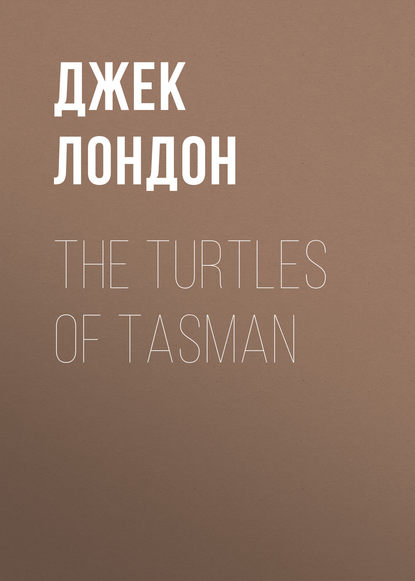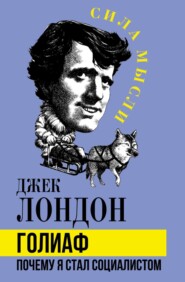По всем вопросам обращайтесь на: info@litportal.ru
(©) 2003-2025.
✖
The Turtles of Tasman
Настройки чтения
Размер шрифта
Высота строк
Поля
"Father here?" he asked curtly, though from under the stiff brim of his John B. Stetson he studied the boy closely.
Sizable for his age, he thought. A mite spare in the ribs maybe, and that possibly due to rapid growth. But the face strong and pleasing and the eyes like Uncle Isaac's. When all was said, a darn good sample.
"No, sir," the boy answered, resting on the saw-buck.
"Where is he?"
"At sea," was the answer.
Josiah Childs felt a something very akin to relief and joy tingle through him. Agatha had married again – evidently a seafaring man. Next, came an ominous, creepy sensation. Agatha had committed bigamy. He remembered Enoch Arden, read aloud to the class by the teacher in the old schoolhouse, and began to think of himself as a hero. He would do the heroic. By George, he would. He would sneak away and get the first train for California. She would never know.
But there was Agatha's New England morality, and her New England conscience. She received a regular remittance. She knew he was alive. It was impossible that she could have done this thing. He groped wildly for a solution. Perhaps she had sold the old home, and this boy was somebody else's boy.
"What is your name?" Josiah asked.
"Johnnie," came the reply.
"Last name I mean?"
"Childs, Johnnie Childs."
"And your father's name? – first name?"
"Josiah Childs."
"And he's away at sea, you say?"
"Yes, sir."
This set Josiah wondering again.
"What kind of a man is he?"
"Oh, he's all right – a good provider, Mom says. And he is. He always sends his money home, and he works hard for it, too, Mom says. She says he always was a good worker, and he's better'n other men she ever saw. He don't smoke, or drink, or swear, or do anything he oughtn't. And he never did. He was always that way, Mom says, and she knew him all her life before ever they got married. He's a very kind man, and never hurts anybody's feelings. Mom says he's the most considerate man she ever knew."
Josiah's heart went weak. Agatha had done it after all – had taken a second husband when she knew her first was still alive. Well, he had learned charity in the West, and he could be charitable. He would go quietly away. Nobody would ever know. Though it was rather mean of her, the thought flashed through him, that she should go on cashing his remittances when she was married to so model and steady-working a seafaring husband who brought his wages home. He cudgelled his brains in an effort to remember such a man out of all the East Falls men he had known.
"What's he look like?"
"Don't know. Never saw him. He's at sea all the time. But I know how tall he is. Mom says I'm goin' to be bigger'n him, and he was five feet eleven. There's a picture of him in the album. His face is thin, and he has whiskers."
A great illumination came to Josiah. He was himself five feet eleven. He had worn whiskers, and his face had been thin in those days. And Johnnie had said his father's name was Josiah Childs. He, Josiah, was this model husband who neither smoked, swore, nor drank. He was this seafaring man whose memory had been so carefully shielded by Agatha's forgiving fiction. He warmed toward her. She must have changed mightily since he left. He glowed with penitence. Then his heart sank as he thought of trying to live up to this reputation Agatha had made for him. This boy with the trusting blue eyes would expect it of him. Well, he'd have to do it. Agatha had been almighty square with him. He hadn't thought she had it in her.
The resolve he might there and then have taken was doomed never to be, for he heard the kitchen door open to give vent to a woman's nagging, irritable voice.
"Johnnie! – you!" it cried.
How often had he heard it in the old days: "Josiah! – you!" A shiver went through him. Involuntarily, automatically, with a guilty start, he turned his hand back upward so that the cigar was hidden. He felt himself shrinking and shrivelling as she stepped out on the stoop. It was his unchanged wife, the same shrew wrinkles, with the same sour-drooping corners to the thin-lipped mouth. But there was more sourness, an added droop, the lips were thinner, and the shrew wrinkles were deeper. She swept Josiah with a hostile, withering stare.
"Do you think your father would stop work to talk to tramps?" she demanded of the boy, who visibly quailed, even as Josiah.
"I was only answering his questions," Johnnie pleaded doggedly but hopelessly. "He wanted to know – "
"And I suppose you told him," she snapped. "What business is it of his prying around? No, and he gets nothing to eat. As for you, get to work at once. I'll teach you, idling at your chores. Your father wa'n't like that. Can't I ever make you like him?"
Johnnie bent his back, and the bucksaw resumed its protesting skreek. Agatha surveyed Josiah sourly. It was patent she did not recognise him.
"You be off," she commanded harshly. "None of your snooping around here."
Josiah felt the numbness of paralysis creeping over him. He moistened his lips and tried to say something, but found himself bereft of speech.
"You be off, I say," she rasped in her high-keyed voice, "or I'll put the constable after you."
Josiah turned obediently. He heard the door slam as he went down the walk. As in a nightmare he opened the gate he had opened ten thousand times and stepped out on the sidewalk. He felt dazed. Surely it was a dream. Very soon he would wake up with a sigh of relief. He rubbed his forehead and paused indecisively. The monotonous complaint of the bucksaw came to his ears. If that boy had any of the old Childs spirit in him, sooner or later he'd run away. Agatha was beyond the endurance of human flesh. She had not changed, unless for the worse, if such a thing were possible. That boy would surely run for it, maybe soon. Maybe now.
Josiah Childs straightened up and threw his shoulders back. The great-spirited West, with its daring and its carelessness of consequences when mere obstacles stand in the way of its desire, flamed up in him. He looked at his watch, remembered the time table, and spoke to himself, solemnly, aloud. It was an affirmation of faith:
"I don't care a hang about the law. That boy can't be crucified. I'll give her a double allowance, four times, anything, but he goes with me. She can follow on to California if she wants, but I'll draw up an agreement, in which what's what, and she'll sign it, and live up to it, by George, if she wants to stay. And she will," he added grimly. "She's got to have somebody to nag."
He opened the gate and strode back to the woodshed door. Johnnie looked up, but kept on sawing.
"What'd you like to do most of anything in the world?" Josiah demanded in a tense, low voice.
Johnnie hesitated, and almost stopped sawing. Josiah made signs for him to keep it up.
"Go to sea," Johnnie answered. "Along with my father."
Josiah felt himself trembling.
"Would you?" he asked eagerly.
"Would I!"
The look of joy on Johnnie's face decided everything.
"Come here, then. Listen. I'm your father. I'm Josiah Childs. Did you ever want to run away?"
Johnnie nodded emphatically.
"That's what I did," Josiah went on. "I ran away." He fumbled for his watch hurriedly. "We've just time to catch the train for California. I live there now. Maybe Agatha, your mother, will come along afterward. I'll tell you all about it on the train. Come on."
He gathered the half-frightened, half-trusting boy into his arms for a moment, then, hand in hand, they fled across the yard, out of the gate, and down the street. They heard the kitchen door open, and the last they heard was:
"Johnnie! – you! Why ain't you sawing? I'll attend to your case directly!"
THE FIRST POET
SCENE: A summer plain, the eastern side of which is bounded by grassy hills of limestone, the other sides by a forest. The hill nearest to the plain terminates in a cliff, in the face of which, nearly at the level of the ground, are four caves, with low, narrow entrances. Before the caves, and distant from them less than one hundred feet, is a broad, flat rock, on which are laid several sharp slivers of flint, which, like the rock, are blood-stained. Between the rock and the cave-entrances, on a low pile of stones, is squatted a man, stout and hairy. Across his knees is a thick club, and behind him crouches a woman. At his right and left are two men somewhat resembling him, and like him, bearing wooden clubs. These four face the west, and between them and the bloody rock squat some threescore of cave-folk, talking loudly among themselves. It is late afternoon. The name of him on the pile of stones is Uk, the name of his mate, Ala; and of those at his right and left, Ok and Un.

















